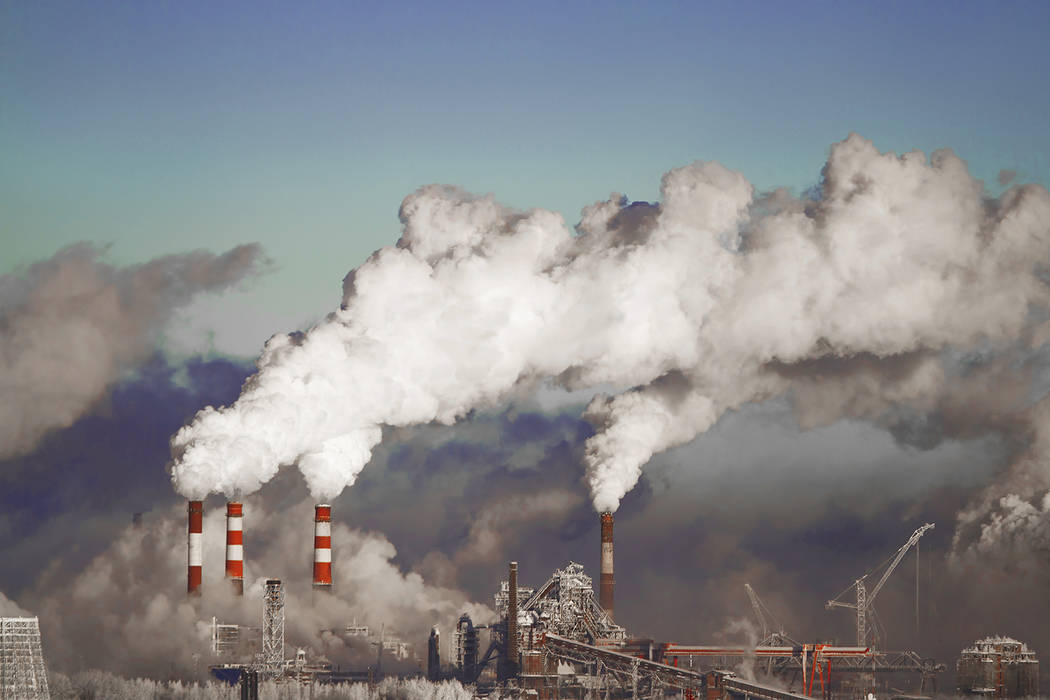Bob McCracken: Changes in Earth’s climate will impact future
The federal government has just released Volume 1 of its Fourth National Climate Assessment.
It was produced by a large number of the world’s best climate scientists and is an authoritative assessment of the earth’s present climate and what the future will likely bring, with a focus on the United States.
And what does all this have to do with the history of Nye County, a reader might ask? Just about everything, I would suggest.
The expected changes in the earth’s climate may well have more of an impact on human beings’ future occupation of this planet than anything else, perhaps with the exception of an all-out nuclear war.
Continued warming of our planet will play an important role in helping shape future history, including Nye County’s.
Now is the time to begin thinking about some of the adjustments that might best be made.
What follows are some highlights from the Executive Summary of Volume 1 of the Fourth National Climate Assessment.
■ The period we are now in, the last 115 years, is the warmest in the history of modern civilization. “Thousands of studies,” says the report, “conducted by researchers around the world have documented changes in surface, atmospheric, and oceanic temperatures; melting glaciers; diminishing snow cover; shrinking sea ice; rising sea levels; ocean acidification; and increasing atmospheric water vapor.”
■ Global average sea level has risen by 7-8 inches since 1900, with about three inches of that since 1993. Moreover, “global average sea levels are expected to continue to rise—by at least several inches in the next 15 years and by 1-4 feet by 2100.” And, “a rise of as much as 8 feet by 2100 cannot be ruled out,” says the report.
■ Importantly, the report concludes that, based on extensive evidence, “it is extremely likely that human activities, especially emissions of greenhouse gases, are the dominant cause of the observed warming since mid-20th century.”
■ Concentrations of CO2 (carbon dioxide) in the global atmosphere from burning fossil fuels have now passed 400 parts per million and have not been that high in about three million years, when global temperatures and sea levels were significantly higher than they are today. Continued growth of emissions of CO2 into the atmosphere for this century and beyond could lead to concentrations not seen in tens to hundreds of millions of years.
■ The report states that global surface temperatures can be reconstructed with confidence for the past 1700 years. Our planet’s “long-term, and unambiguous warming trend has continued during recent years,” the Executive Summary notes. At the time, 2014 was the warmest year on record globally. It was surpassed by a wide margin by 2015, and 2016 surpassed 2015. Sixteen of the warmest years on record for our planet occurred in the last 17 years.
■ The report states that “Solar output changes and internal natural variability can only contribute marginally to observed changes in climate over the last century.” The likely human contribution between 1951 and 2010 is more than 91 percent. Human activities are the primary driver and there are no convincing alternative explanations.
■ The global climate is expected to continue to change over this century and beyond. The amount of change over the next few decades, says the report, “will depend primarily on the amount of greenhouse (heat-trapping) gases emitted globally and on the remaining uncertainty in the sensitivity of Earth’s climate to those emissions.”
■ With significant reductions of CO2 emissions, global average temperature rise could be limited to 3.6oF (2oC) above pre-industrial times or less. Without major reductions in greenhouse gas emissions, annual average global temperatures could reach 9oF (5oC) or more above pre-industrial levels by the end of this century.
■ The world’s oceans have absorbed about 93 percent of the excess heat caused by greenhouse gas-induced warming since the mid-20th century. Warmer oceans, of course, impact the weather worldwide.
■ The world’s oceans now absorb more than a quarter of the CO2 injected into the atmosphere by human action, making the oceans more acidic, with increasing potential for significant harm to marine life.
The current rate of acidification is unparalleled in at least 66 million years, with projected huge increases in the future.
The massive new report on climate change emphasizes the above and many other negative impacts we human beings are having on earth’s climate, resulting from our role in increasing the levels of greenhouse gases in the atmosphere.
It also suggests there could be additional unanticipated negative surprises waiting for us down the road if we don’t change our ways. One source of unwanted surprise might lie in our failure to understand potential compounding of events and another when presently little-understood critical thresholds or tipping points are reached.
We are looking at the high probability of the earth’s climate in this century becoming significantly warmer than today.
Under a no- or limited-action scenario, will the world’s human life support system then be able to provide for present-day numbers - about 7.3 billion - let alone a projected world population of perhaps 10 billion in a few decades? The need for wisdom in doing something about human-induced climate change is clear.
Bob McCracken has a doctorate in cultural anthropology and is the author of numerous books in the Nye County Town History Project.











